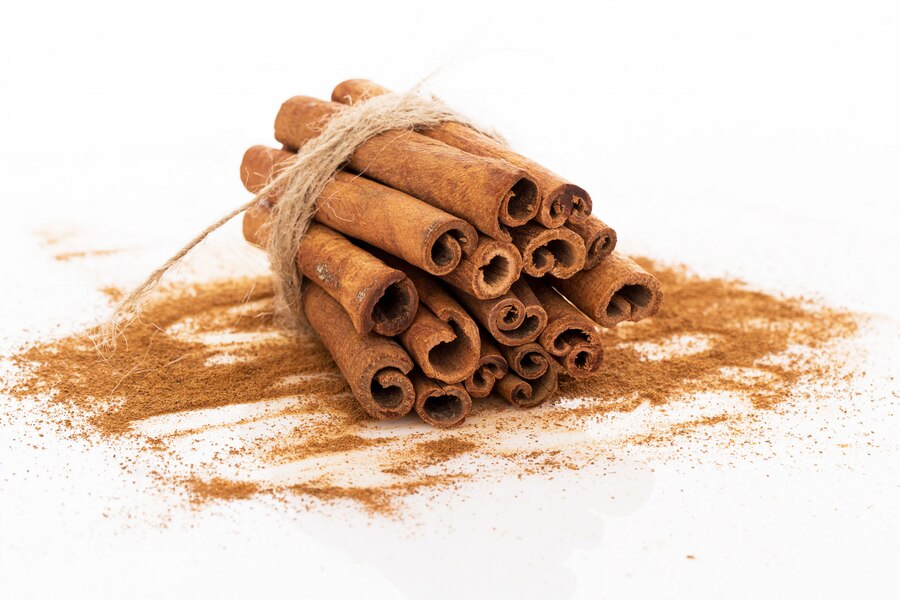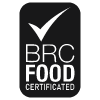Cinnamon is a spice obtained from the inner bark of several tree species from the genus Cinnamomum. Cinnamon is used mainly as an aromatic condiment and flavouring additive in a wide variety of cuisines, sweet and savoury dishes, breakfast cereals, snack foods, bagels, teas, hot chocolate and traditional foods. The aroma and flavor of cinnamon comes from the essential oil and its main component, cinnamaldehyde, and many other compounds, including eugenol.
Cinnamon has valuable medicinal properties for thousands of years In recent years, modern science has begun to confirm the many potential health benefits associated with this spice
types of cinnamon
There are two types of cinnamon: Ceylon (native to Sri Lanka, commonly found in Mexican cuisine) and cassia (commonly grown in China, Vietnam, and Indonesia). Korintje, grown in Indonesia, is the most common variety sold in the United States and has a sweeter, milder flavor.
The scent of this spice is mostly used in the perfumery and essential oil industries. It can be included in all kinds of food, perfumes and pharmaceutical products.

Hasna Export Company can supply high quality cinnamon for your company and distributor.
You can send your request, we can prepare it for you.
Contact us for more information.
Important Compounds
Cinnamaldehyde and trans-cinnamaldehyde (Cin) are present in the essential oil, which contribute to the aroma and various biological activities with cinnamon.
This spice contains potassium, magnesium and calcium. Potassium helps counteract sodium’s effect on blood pressure and controls heart rate. Potassium plays a role in nerve function.
Magnesium and calcium work together to maintain a healthy heart rate. These two minerals are essential for skeletal health and prevent weakening of the bones, a condition called osteoporosis
How to use
Cinnamon can be used as a spice in food or as a supplement. Its supplements are usually taken in divided doses throughout the day and can be taken with food.
or taken without food.
An easy way to increase your cinnamon intake is to add this spice to your favorite meals, snacks, and drinks. Cinnamon can be added to foods like oatmeal, baked goods, smoothies, chia pudding, and soups to enhance its flavor.
Benefits of cinnamon

1. It has antioxidant properties
2. Anti-inflammatory
3. Antibacterial and antifungal
4. Antiviral properties
5. Reducing blood sugar and reducing the risk of type 2 diabetes
6. Improving insulin sensitivity
7. May be beneficial for brain aging
8. Management of blood pressure
9. Protection from heart diseases
10. Protection of intestinal health
11. Protection against cancer
12. Improving oral hygiene
Is Cinnamon Safe?
- If consumed as part of a regular diet, cinnamon is safe and has no adverse side effects. As with many spices and herbs, taking higher doses of cinnamon in supplement form can cause side effects and is not safe for everyone
- Cassia cinnamon contains high levels of a compound called coumarin. Its regular consumption in high doses can be toxic to the liver and cause health risks. Most cassia cinnamon products do not contain enough coumarin to harm health. People with liver disease should avoid consuming high doses of cassia cinnamon products.
- Supplements that contain high doses of cinnamon be unsafe for people who are pregnant or breastfeeding. There is not enough research on the effects of cinnamon supplements for these groups
- If you are taking one or more medications; you should consult your doctor.
Side effects of cinnamon
Cinnamon is slightly tolerable with reported side effects. Side effects of taking cinnamon supplements in high doses:

- Headache
- heartburn
- Flatulence
- abdominal discomfort
- nausea
- diarrhea
- Allergic reactions
- Very high doses of cinnamon may lead to hepatotoxicity
Cinnamon nutritional value table
| Nutritional value table of cinnamon powder spice | |
| The main constituent | Amount per 100 grams |
| energy (calories) | 247 kcal |
| carbohydrate | 80.59 grams |
| Protein | 3.99 grams |
| fat | 1.24 grams |
| Water | 10.58 grams |
| fiber | 53.10 grams |
| sugar Loaf | 2.17 grams |
| Cholesterol | 0.00 mg |
| Vitamins cinnamon powder, spice | |
| The name of the vitamin | Amount per 100 grams |
| Vitamin A | 15.00 micrograms |
| Vitamin D | 0.00 µg |
| Vitamin E | 2.32 mg |
| Vitamin K | 31.20 micrograms |
| Vitamin C | 3.80 mg |
| Thiamine (B1) | 0.02 mg |
| Riboflavin (B2) | 0.04 mg |
| Niacin (B3) | 1.33 mg |
| Choline (B4) | 11.00 mg |
| pantothenic acid (B5) | 0.36 mg |
| Vitamin B6 | 0.16 mg |
| Folate (B9) | 6.00 micrograms |
| Vitamin B12 | 0.00 mg |
| Minerals cinnamon powder, spice | |
| The name of the mineral | Amount per 100 grams |
| Calcium | 1002.00 mg |
| iron | 8.32 mg |
| magnesium | 60.00 mg |
| phosphorus | 64.00 mg |
| potassium | 431.00 mg |
| sodium | 10.00 mg |
| Roy | 1.83 mg |
| copper | 0.34 mg |
| Manganese | 17.47 mg |
| selenium | 3.10 micrograms |
The products we offer are:
Licorice Root Powder : link
Garlic Powder : link
Paprika Powder : link
Dried Garlic : link
Tomato Powder : link









I’ve been surfing on-line greater than three hours nowadays, yet I by no
means found any interesting article like yours.
It is pretty price sufficient for me. Personally, if all webmasters and bloggers
made good content as you probably did, the net will probably be much more useful than ever before.
Thank you for your kind words. Much appreciated.
I’ve been browsing on-line more than 3 hours lately, yet I by no means discovered
any attention-grabbing article like yours. It is beautiful price sufficient for
me. In my view, if all website owners and bloggers made excellent content
as you probably did, the web will be much more useful than ever before.
I like this website very much, Its a real nice post to read and receive information. “Things do not change we change.” by Henry David Thoreau.